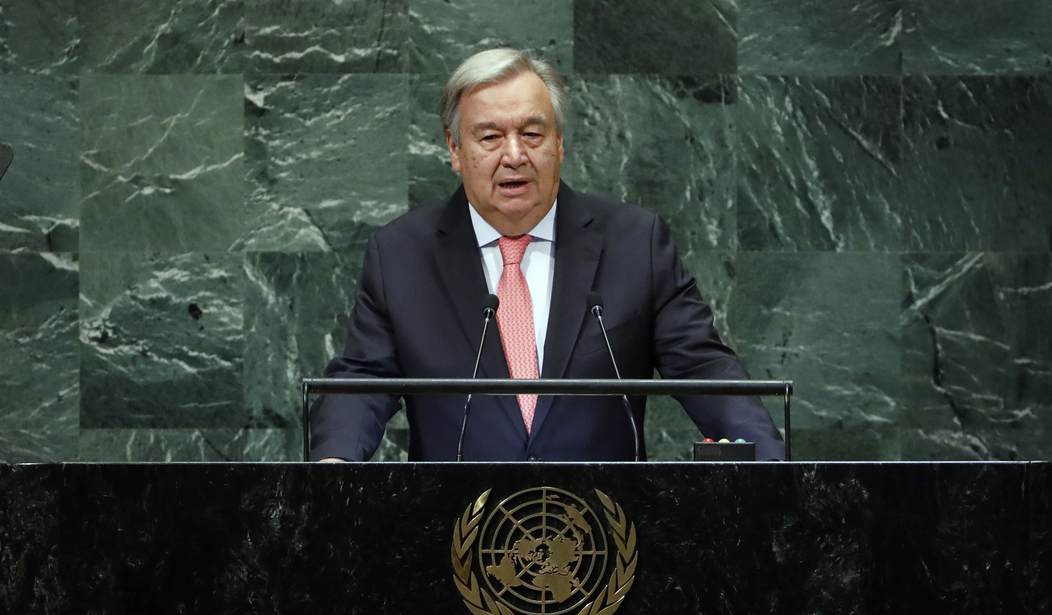During his opening remarks at the World Climate Action Summit in Dubai, also known as COP28, United Nations Secretary General Antonio Guterres declared the world is suffering from the “sickness” of climate change, which only “global leaders can cure.”
“The science is clear,” Guterres said. “The 1.5-degree limit is only possible if we ultimately stop burning all fossil fuels. Not reduce. Not abate. Phaseout – with a clear timeframe aligned with 1.5 degrees.”
Comments like these are nothing new. We’ve heard them before. For instance, in 2019, while campaigning for the Democrat Party’s presidential nomination, Joe Biden promised to “eliminate fossil fuels.”
So, what would life be like without fossil fuels?
For starters, the world would grind to a halt because transportation would become nearly impossible. No more airplanes. No more cars, including electric vehicles. No more internal-combustion vehicles of any kind. And, no more long journeys by sea. Without fossil fuels, traveling over long distances would be unbearable.
Before the advent of fossil fuels, humans relied on beasts of burden, sailboats, and other primitive modes of transportation. Traveling even a few miles on land was an arduous journey, full of pitfalls.
We take for granted the fact that fossil fuels have revolutionized how we travel, making it far more affordable and safer to traverse vast distances in short periods.
We also take for granted that fossil fuels allow us to easily communicate, access information, heat our homes when it’s cold, and turn on the air conditioner when it is too hot. The abundant, cheap, and reliable electricity provided by fossil fuels also allows us to power refrigerators, turn on the lights with the flick of a switch, and have at our disposal a host of creature comforts and gadgets that most people literally cannot live without.
Recommended
Without fossil fuels, there is simply no way we could maintain the standard of living that we have become accustomed to. Daily life would be agonizing.
Perhaps most concerning, a world without fossil fuels would also mean a world without the thousands of fossil fuel byproducts that have transformed life as we know it. As the U.S. Department of Energy notes, “Petrochemicals derived from oil and natural gas make the manufacturing of over 6,000 everyday products and high-tech devices possible.” This includes “clothing,” “pharmaceuticals,” “plastics,” and even “wind turbine blades.” So, good luck increasing the capacity of renewable energy without fossil fuels.
Fortunately, there is at least one voice of reason at COP28. Sultan al-Jaber, who is serving as president of the conference, responded to the calls to eliminate fossil fuels by pleading: “Please, help me, show me for a phase-out of fossil fuel that will allow for sustainable socio-economic development, unless you want to take the world back into caves.”
However, soon after his commonsense declaration, al-Jaber backtracked, stating, “the phase-down and the phase-out” of fossil fuels is “essential.” Apparently, attacks from Al Gore and John Kerry got under the skin of al-Jaber, causing him to instantly change his outlook on the future of fossil fuels.
Ironically, those calling for the wholesale elimination of fossil fuels tend to be the very elites whose carbon footprints dwarf the rest of us. Take John Kerry for example. Over the first 18 months of his tenure as Special Presidential Envoy for Climate, his private jet trips have resulted in the burning of 325 metric tons of carbon.
Leaders are supposed to lead by example. I would have much more respect if people like John Kerry, Al Gore, and Antonio Guterres actually practiced what they preached. By all means, no one is stopping them from living a spartan lifestyle.
But, they are total hypocrites, constantly admonishing the vast majority of the world’s population for using fossil fuels while they, themselves, are responsible for spewing vast amounts of carbon dioxide into the atmosphere. Going forward, we should simply laugh at their outrageous and ludicrous demands.
In the seventeenth century, well before humans harnessed the potential of fossil fuels, Thomas Hobbes described the state of nature as “solitary, poor, nasty, brutish, and short.” The same could be said for life before (and potentially after) fossil fuels.
Chris Talgo (ctalgo@heartland.org)is editorial director at The Heartland Institute.

























Join the conversation as a VIP Member